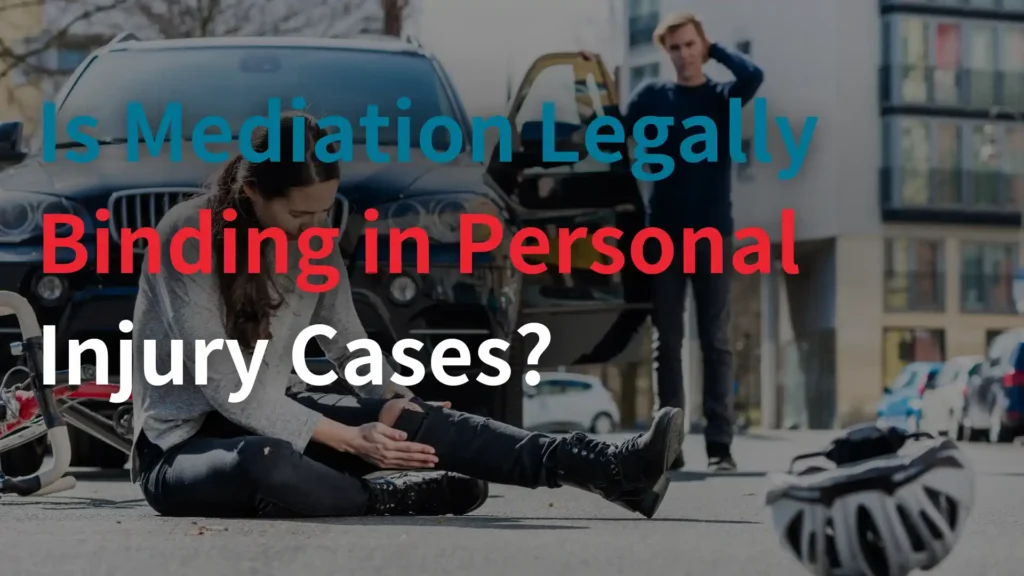 If you were injured by someone else’s negligence in Missouri, you may file a claim or lawsuit. During negotiations, alternative dispute resolution (ADR) may be discussed. ADR is usually a voluntary process that parties in a lawsuit can enter into to resolve their legal dispute without needing to go to trial. Trials can be expensive and time-consuming, and there’s never a guarantee that things will go your way. For this reason, most personal injury lawsuits end in a settlement, and alternative dispute resolutions like mediation are one path toward reaching that goal.
If you were injured by someone else’s negligence in Missouri, you may file a claim or lawsuit. During negotiations, alternative dispute resolution (ADR) may be discussed. ADR is usually a voluntary process that parties in a lawsuit can enter into to resolve their legal dispute without needing to go to trial. Trials can be expensive and time-consuming, and there’s never a guarantee that things will go your way. For this reason, most personal injury lawsuits end in a settlement, and alternative dispute resolutions like mediation are one path toward reaching that goal.
Mediation is a form of negotiation in which a neutral mediator facilitates discussions between the parties. In traditional negotiations, the parties and their lawyers attempt to reach an agreement before a full trial becomes necessary. However, this doesn’t always work if the parties don’t see eye-to-eye, which is where a mediator comes in.
Mediators don’t make decisions about the case. Instead, they ask questions, maintain order, and promote finding a solution that both parties can agree on. These mediators are usually legal experts, such as lawyers who aren’t involved in the case.
If mediation fails to result in a settlement, the next step could be arbitration. During arbitration, a neutral arbitrator listens to the arguments of both parties and makes a decision on the case. In general, mediation is seen as a better option in most personal injury cases because it grants the parties the freedom to determine the outcome of their case themselves rather than having an arbitrator determine it for them.
In Missouri, mediation is not a legally binding process by default. If you don’t like the outcome of your mediation and haven’t signed a written agreement that details the mediation results, you can generally ignore it and take your case to arbitration or trial. However, mediation can be a legally binding process if both parties agree to it.
The main reason for agreeing to a legally binding mediation agreement is that mediation is voluntary. In theory, both parties are there because they want to resolve their legal dispute without having to go through a costly and time-consuming trial. So, if they agree on settlement terms, they typically don’t want the other party to be able to back out of those terms after the fact.
For example, let’s say you were injured in a slip-and-fall case. You may enter mediated negotiations with the convenience store where you fell and come to an agreement in which the store will pay for your medical expenses and lost wages. Once you’ve agreed to these terms, you don’t want the convenience store owner to be able to change their mind and take their chances at trial.
If you choose to make your mediation legally binding, it’s as simple as having both parties sign a written agreement. This signed document should outline the key terms of the agreement, which your lawyer can review.
If the other party attempts to go back on their word after signing a legally binding agreement, you and your lawyer can take them to court to have a judge enforce the agreed-upon settlement terms.
In some cases, court approval may be required for a mediated settlement to be legally binding. This is typically the case when the plaintiff is a minor or an individual with a cognitive disability. The purpose of this court approval is to make sure that the vulnerable plaintiff hasn’t been taken advantage of.
 There are numerous benefits of relying on mediation to settle your personal injury case over going to trial. Some of the most significant benefits offered by mediation include:
There are numerous benefits of relying on mediation to settle your personal injury case over going to trial. Some of the most significant benefits offered by mediation include:
Settlement agreements signed at the end of mediation carry the same legal weight as any other contract. If the other party doesn’t uphold their side of the agreement, you can file a motion with the court to have the judge enforce the terms of the settlement. Examples of the defendant not upholding their end of the agreement include:
Did someone else’s negligent or intentional actions cause you harm? Contact Goldblatt + Singer at (314) 231-4100 for a free consultation with our skilled personal injury lawyers in St. Louis, Missouri. During your initial consultation, we’ll review your case, walk you through the legal process of a personal injury lawsuit, and answer any remaining questions you have.